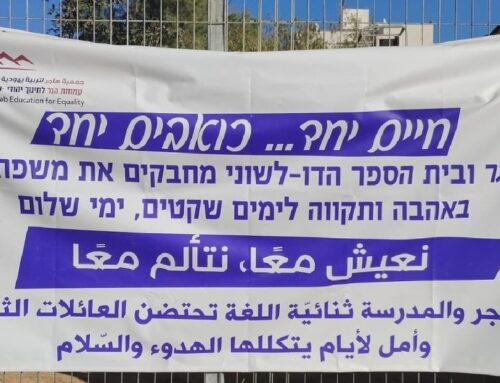. . . The opening speaker, the ever-energetic 91 year young former President Shimon Peres declared that “managing the conflict is not a policy”. He said that we see where managing the conflict got us in Gaza this summer, and in Jerusalem right now. “Where is the Israeli peace initiative?” he asked, adding that “the State of Israel would be giving up on its future if it pursues the status quo and remains without peace.” Peres said that the Arab Peace Initiative (sometimes called the Saudi Initiative) launched at the Arab League Summit conference in 2002, could be a good basis for moving towards a regional arrangement, but progress on the Israeli-Palestinian track was a key to making a regional arrangement. He recalled the three Arab no’s of Khartoum in 1967 — no peace with Israel, no recognition of Israel, no negotiations with it – have been replaced by an Arab yes – yes to recognition and normal relations with Israel – after a two-state solution with the Palestinians is reached. He added that “Israel will not have permanent security without peace, it will not have a stable and prosperous economy without peace, and it will not have its international standing and special relationship with the United States without peace.”
Read more: Remembering Rabin 19: Time for an Israeli Diplomatic Initiative | Hillel Schenker | The Blogs | The Times of Israel http://blogs.timesofisrael.com/remembering-rabin-19-time-for-an-israeli-diplomatic-initiative/#ixzz3IgWalEQW
A week later, last Saturday night, Nov. 8, was the second Rabin Memorial rally. This time it was organized by the youth movements, supposedly to include the right, but I didn’t see any members of either Bnei Akiva or Beitar there, and very few kipot (yarmulkes). I was disappointed with Pres. Reuven Rivlin’s presentation. It could have been stronger: there was no mention of racism, nor specific incidents of recent violence, and no comment on the fact that his colleagues in the Likud were among the primary inciters that led to Rabin’s assassination. Of course, there was no mention of peace either. Still, it was important that he came. And it is also very important that during this critical time in relations between Jewish and Arab citizens of Israel, he calls for Jewish-Arab cooperation and understanding, and for reducing the tensions between the two communities who are fated to live together, something which Netanyahu appears incapable of doing.







Leave A Comment